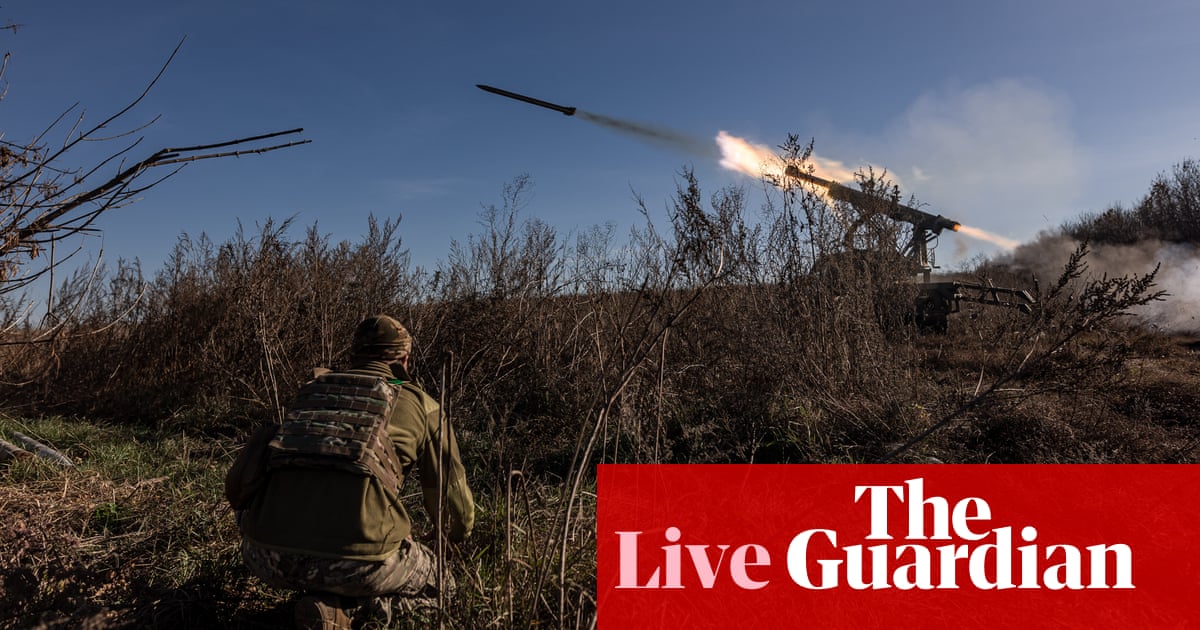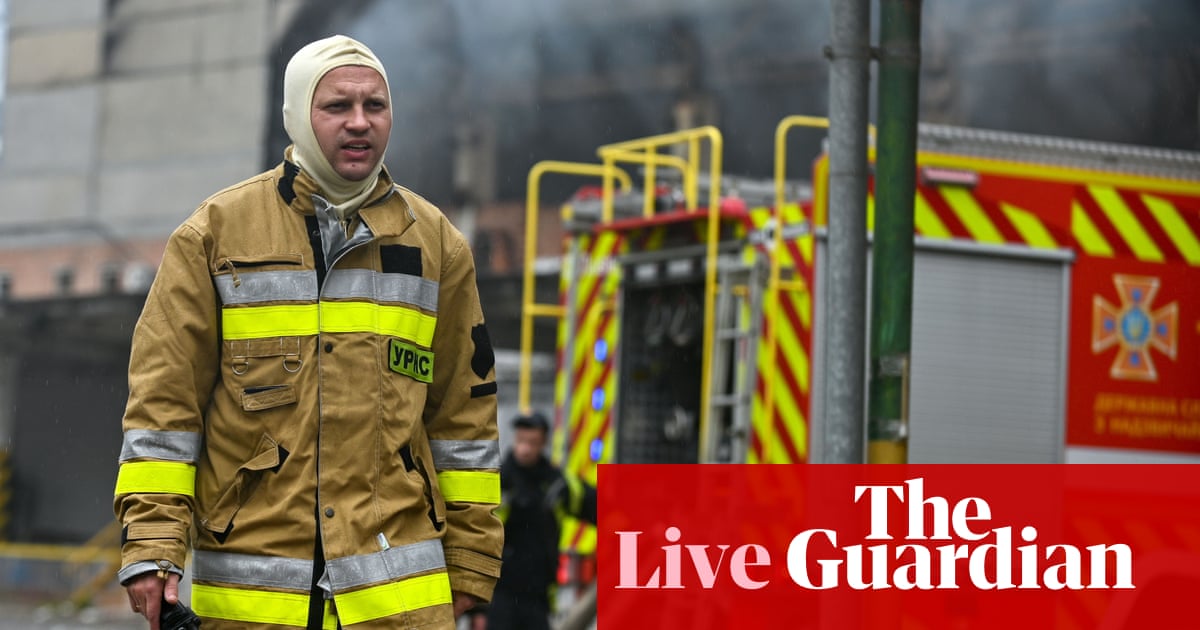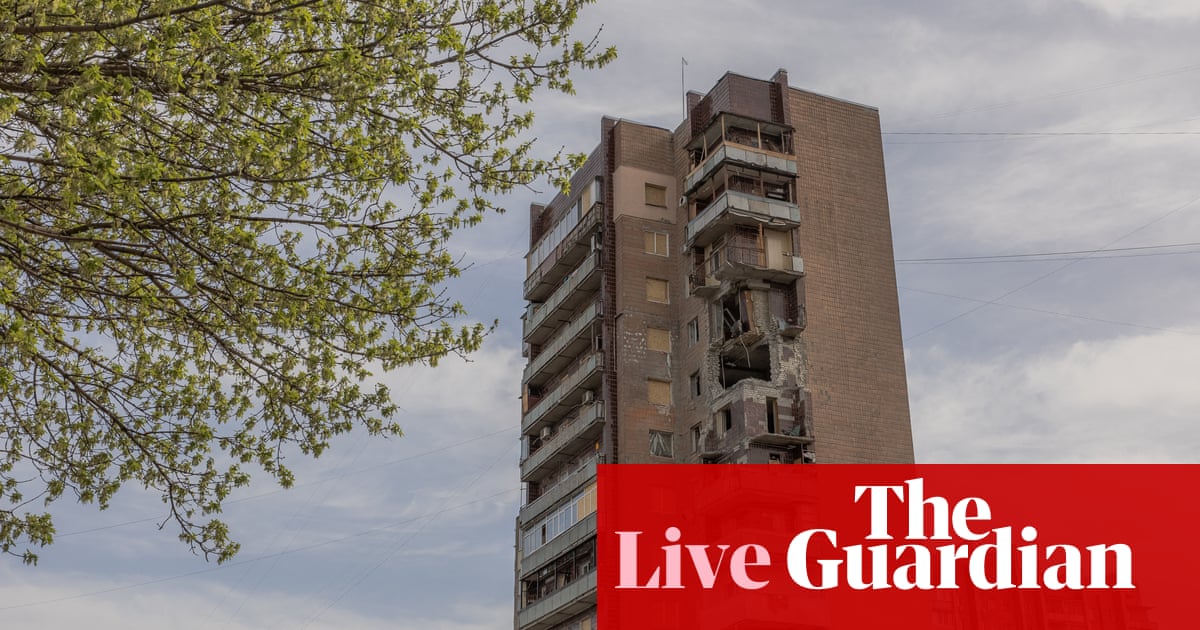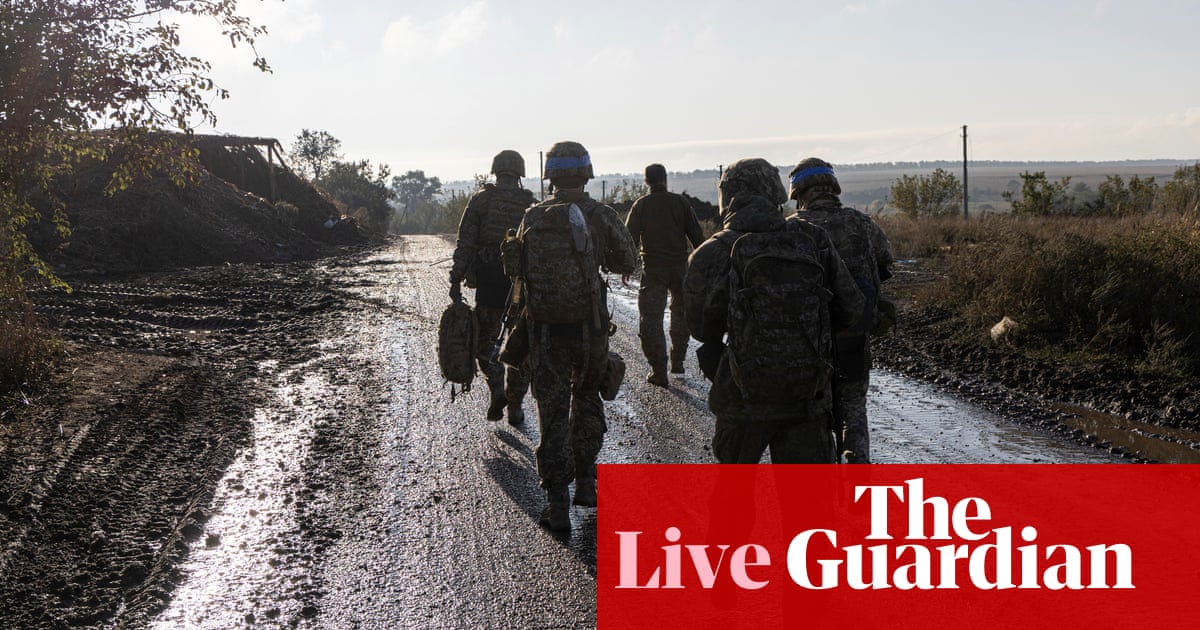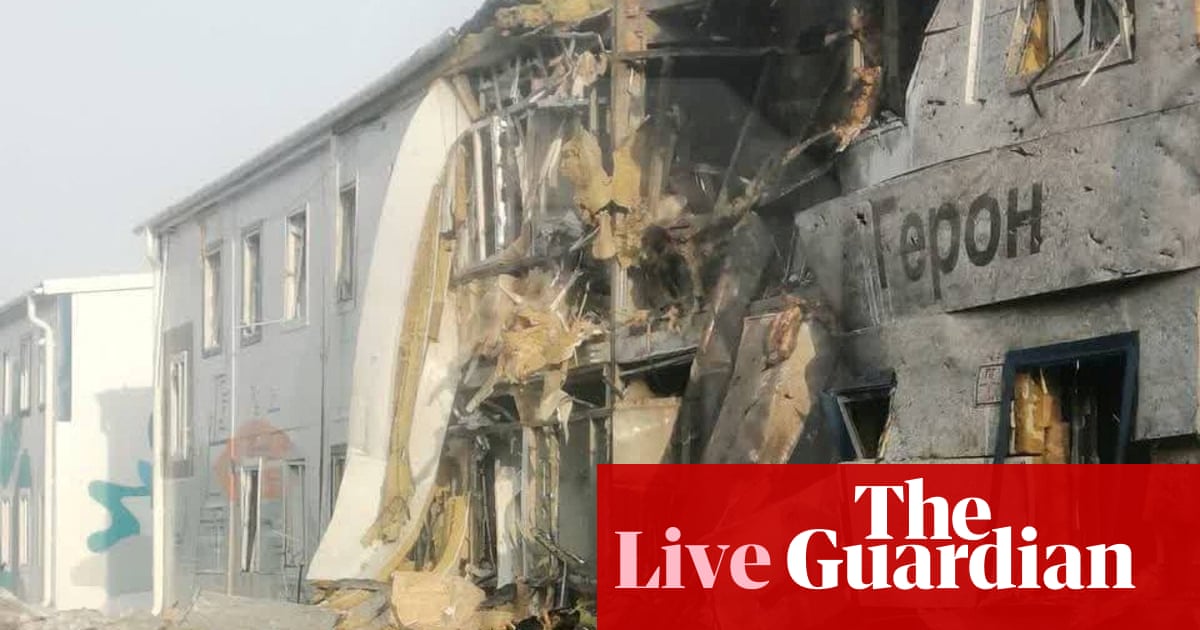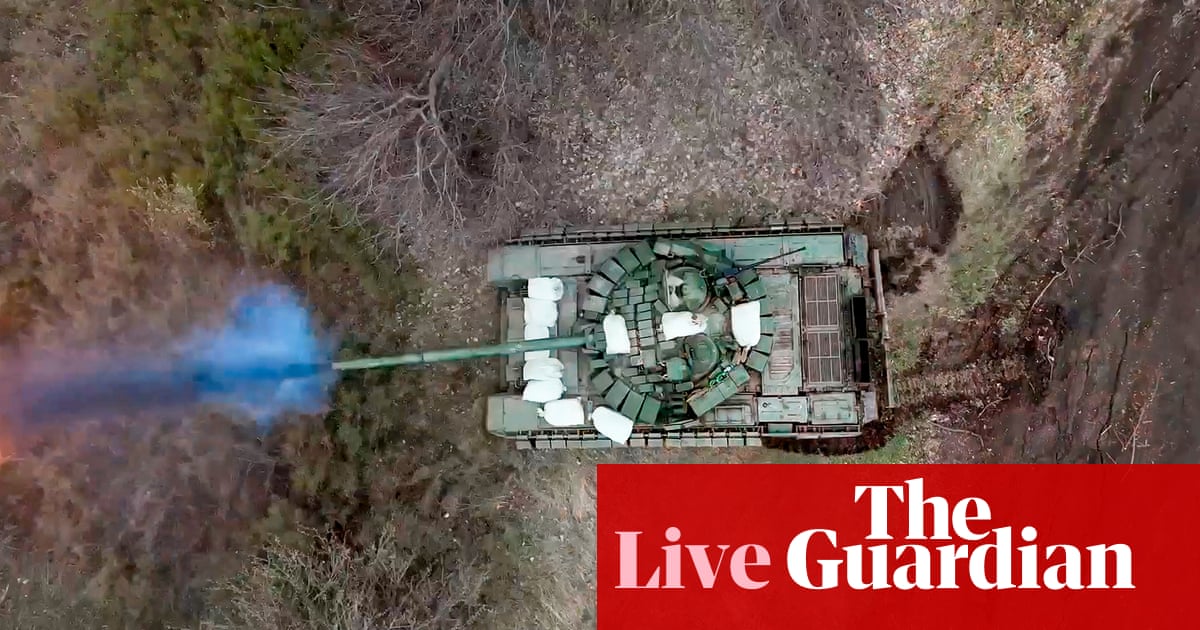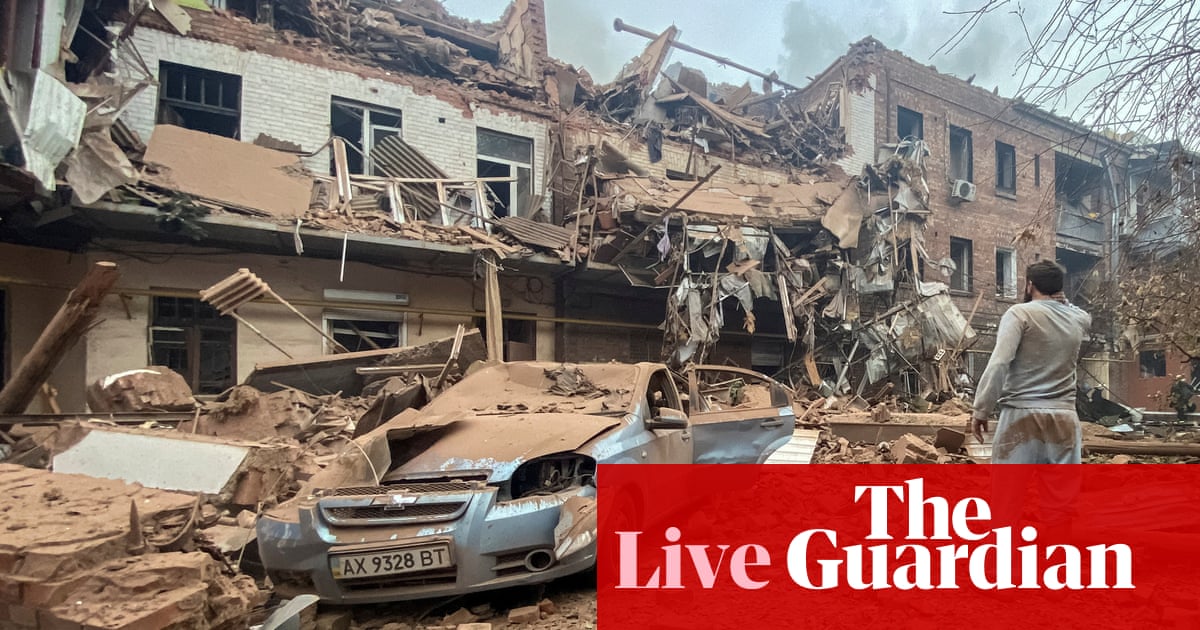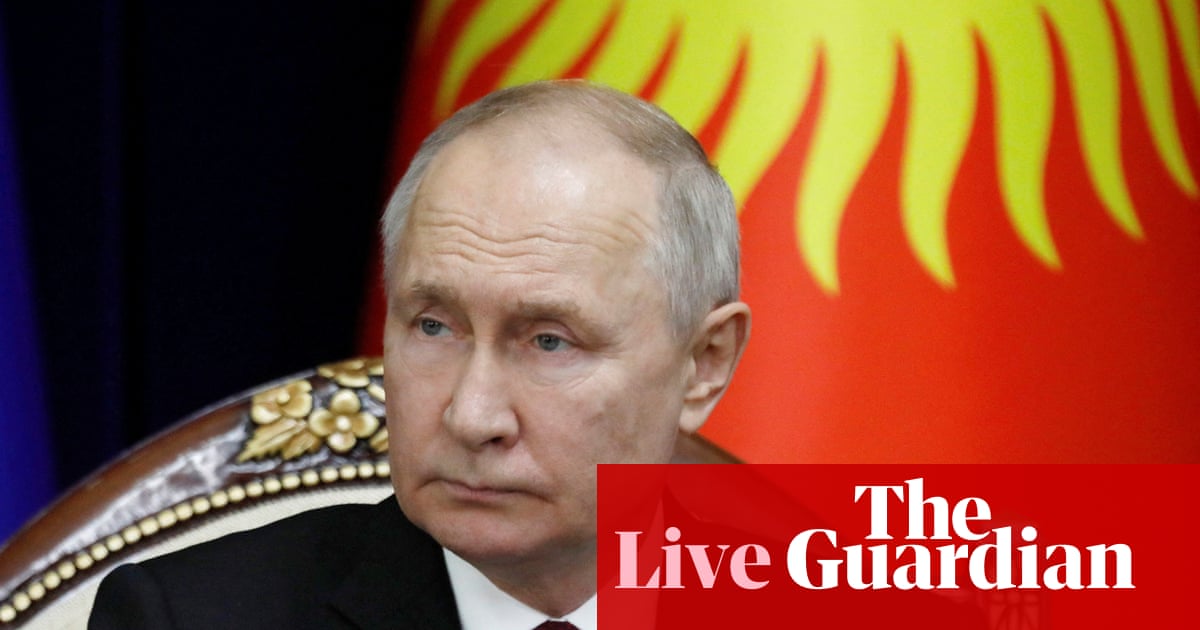
IOC suspends Russian Olympic Committee for including four annexed regions
The International Olympic Committee on Thursday suspended the Russian Olympic Committee for recognising regional organisations from four territories annexed from Ukraine.
The IOC said the ROC was banned with immediate effect, and would not be eligible for any funding after it recognised Olympic councils from the regions of Luhansk, Donetsk, Kherson and Zaporizhzhia.
All four were unilaterally annexed late last year by the Russian Federation from Ukraine after referendums widely derided as a sham.
Summary
Here’s a roundup of the key developments from the day:
The International Olympic Committee on Thursday suspended the Russian Olympic Committee for recognising regional organisations from four territories annexed from Ukraine. Russia’s National Olympic Committee denounced the decision, calling it counterproductive and politically motivated.
Ukraine claims it has thwarted an attempt overnight by a Russian saboteur group to cross its north-eastern border in the Sumy region, Serhiy Naev, commander of the joint forces of the armed forces of Ukraine, said on Thursday. “The saboteurs tried to cross the state border of Ukraine and intended to move further towards one of the civilian critical infrastructure facilities,” Reuters reports he wrote on Telegram. The eight-member group was repelled by Ukrainian fire, he said, adding that there were no losses among Ukrainian troops.
Russia expects its military and defence cooperation with Kyrgyzstan to expand, the Russian president, Vladimir Putin said during a visit to a Russian airbase near the Kyrgyz capital Bishkek in his first trip outside Russia since the international criminal court issued a warrant for his arrest over the deportation of Ukrainian children to Russia.
Ukraine claims to have downed 28 of 33 drones launched at its territory overnight by Russia. Port infrastructure was damaged and an elderly woman was injured in Odesa by one of the drones that got through. Some of the drones were aimed at ports on the Danube.
A handout photograph from the general prosecutor’s office of Ukraine claims to show damage to a grain warehouse as a result. “Unfortunately, there was a hit on port infrastructure. A grain storage facility was damaged, there is damage directly to the grain itself,” Natalia Humeniuk, a spokesperson for the southern military command, told an online briefing.
Romania’s defence ministry has reported the discovery of a drone crater near the Nato member’s border with Ukraine after the Russian attacks.
Ukraine’s president, Volodymyr Zelenskiy, has posted on social media claiming Ukraine is holding ground in Avdiivka, which appears to have been the target of concerted Russian military efforts over the last few days. On Wednesday, Ukrainian officials said Russian forces had redirected large numbers of troops and equipment to Avdiivka in their largest attack on the town since launching the invasion of Ukraine in February 2022.
The Belgorod governor, Vyacheslav Gladkov, reported that three people, including a small child, had been killed by falling debris from a drone over Russia. Earlier he had claimed that air defence had downed several Ukrainian drones over the region.
Antti Pelttari, Finland’s security intelligence service director, has said his country cannot rule out the possibility that a “state actor” was involved in damaging the Balticconnector gas pipeline and a parallel telecoms cable. Speaking at Nato headquarters this morning, the Estonian defence minister, Hanno Pevkur, said the security of undersea infrastructure was “one of the most acute topics at the moment for Estonia and Finland”.
The Czech Republic’s foreign ministry will summon Russia’s ambassador over Russian attacks on the Ukrainian hamlet of Hroza earlier this month.
A Russian missile struck a school in the town of Nikopol in the central Ukrainian region of Dnipropetrovsk on Wednesday, killing at least four people, Ukrainian officials said.
Zelenskiy urged Ukraine’s allies on Wednesday to arm his country to survive the winter. He made a plea for air defence, long-range missiles and ammunition in the face of fears that the Hamas attack on Israel could distract key backer the United States from the conflict in his country. “How to survive during this next winter for us is big,” Ukraine’s president said as he addressed the media with Stoltenberg before meeting alliance defence ministers. The Nato meeting continues in Brussels on Thursday.
We’re closing this liveblog shortly. Thanks so much for joining us.
Pressure mounts for Turkey and Hungary to ratify Swedish Nato bid
While fighting in Israel and Gaza has overshadowed discussions at Nato today, some longstanding policy priorities are still in the spotlight – especially the saga of Sweden’s Nato membership application.
Despite repeated promises, Turkey and Hungary have yet to ratify Swedish membership. At the ministers’ meeting, some delegations reiterated the urgency of moving ahead.
The UN human rights council on Thursday extended the mandate of its rapporteur on rights violations in Russia by a year, in a second diplomatic defeat for Moscow in three days, AFP reports.
The UN’s top rights body adopted a resolution brought by several European countries to prolong Bulgarian human rights expert Mariana Katzarova for another year by 18 votes to seven.
On Tuesday, countries scotched Russia’s bid to rejoin the 47-member human rights council, having kicked Moscow out in April last year following its invasion of Ukraine.
However, 83 countries at the United Nations general assembly in New York did vote for Russia to rejoin the UN’s top rights body – more than Ukraine and its allies had hoped for.
In Geneva on Thursday, the rights council inflicted another diplomatic blow on Russia by passing the resolution.
Argentina, Britain, France, Germany, Ukraine and the United States were among the countries voting to extend the special rapporteur’s mandate.
China, Cuba, Eritrea, Kazakhstan and Vietnam voted against a prolongation.
India, Malaysia, Mexico, Pakistan, South Africa and the United Arab Emirates were among the 22 countries abstaining.
In September 2022, the council decided a special rapporteur was needed for Russia, amid concerns over an intensifying domestic crackdown by Moscow during its war in Ukraine.
In April, the council agreed to appoint Katzarova.
She is the first UN-backed monitor of the rights situation in any of the five permanent member states on the UN security council.
The resolution passed Thursday calls on Moscow to establish “constructive communication and full cooperation” with Katzarova and allow her unhindered access, including to meet freely with civil society and individuals in detention.
Moscow has refused to let her in and not recognised her mandate.
Before Thursday’s vote, US ambassador Michele Taylor told the council:
No country is above scrutiny, no matter how upsetting or embarrassing they find it; no matter how strong their military is; on matter how wide the reach of their proxies; and no matter how aggressively they threaten or cajole other countries.
My colleagues Luke Harding and Phil Caller in Hroza have this report from Hroza, a tiny community of 300 people, in the north-east of Ukraine:
The funeral procession began at midday. Four coffins were taken out of a cottage and loaded into the back of two white vans. The vehicles trundled along a dirt track. Mourners – 30 of them, a few clutching carnations – followed. They walked past a grassy football pitch and a pair of chained-up goats, before turning right along an avenue of poplars.
Their destination was the village cemetery in Hroza, a tiny community of 300 people, in the rustic north-east of Ukraine. Once the cemetery was small. Over the past few days it has grown, as gravediggers chopped down trees and dug fresh plots. They were still working as the cortege arrived, led by a priest, under a flawless blue sky.
The funerals were for four members of the same family: Anatoliy Kozyr, his daughter Olha, son Ihor, and grandson Ivan. Ivan was eight. They were killed last week when Russia hit the cafe where they were sitting with an Iskander missile. Fifty-nine people died. Six were wounded. It was one of the worst episodes in Moscow’s bloody war. According to Kyiv’s SBU intelligence agency, it was also a story of treason and betrayal.
For seven months last year Russian soldiers occupied Hroza. They moved into private houses, looted cars and demanded vodka. Most villagers resented their new foreign overlords. A few welcomed them. They included two brothers, Volodymyr and Dmytro Mamon, who grew up in the village and served as policemen. Both, it is alleged, defected to the Russian side.
The US imposed sanctions on two owners of tankers that carried Russian oil above the G7 price cap of $60 (£49) a barrel, one based in Turkey and one based in the United Arab Emirates, the US Treasury Department said on Thursday, Reuters reports.
The US, other G7 countries and Australia imposed the cap last year, seeking to reduce Russia’s revenues from seaborne oil exports as part of sanctions for its invasion of Ukraine.
The cap bans western companies from providing maritime services, including insurance, finance and shipping for Russian seaborne oil exports sold above $60 a barrel, while seeking to keep oil flowing to markets.
Caps also were imposed on two oil products.
Joe Biden’s administration placed sanctions on Turkey-based Ice Pearl Navigation SA, owner of the Yasa Golden Bosphorus, which the Treasury said carried Russian ESPO crude priced above $80 a barrel after the cap took effect in December last year.
The US also imposed sanctions on UAE-based Lumber Marine SA, owner of the SCF Primoyre, which the Treasury said was carrying Novy Port Russian crude above $75 per barrel.
Both tankers, which conducted port calls in Russia, used US-based service providers while transporting the Russian origin oil, the Treasury said.
A senior Treasury official, speaking on condition of anonymity, told reporters in a call:
Because of the actions we’re announcing today, and the further actions we will take in the coming weeks and months, these costs will continue to rise and Russia’s ability to sustain its barbaric war will continue to weaken.
Russian Olympic Committee criticises "politically motivated" IOC decision
Russia’s National Olympic Committee (NOC) denounced a decision by the IOC to suspend it in response to its move to incorporate sports bodies from occupied Ukrainian regions.
The NOC said:
The IOC has taken yet another counterproductive, politically motivated decision ... Russian athletes, the majority of which are still groundlessly banned from international performances, are not affected in any way by this step.
Here are some of the latest images sent to us from Ukraine over the news wires.
IOC suspends Russian Olympic Committee for including four annexed regions
The International Olympic Committee on Thursday suspended the Russian Olympic Committee for recognising regional organisations from four territories annexed from Ukraine.
The IOC said the ROC was banned with immediate effect, and would not be eligible for any funding after it recognised Olympic councils from the regions of Luhansk, Donetsk, Kherson and Zaporizhzhia.
All four were unilaterally annexed late last year by the Russian Federation from Ukraine after referendums widely derided as a sham.
Romania’s president’s office has issued a statement after a crater was discovered today near the border with Ukraine, thought to have been caused by a drone.
“The intensification of Russian drone attacks on Ukraine’s sea and river ports in the Black Sea area has brought the war even closer to Romania’s borders,” Reuters reports the president’s office said.
“Incidents with fragments of drones falling on the territory of our country and implicitly of Nato have increased the risk of escalation.”
The US secretary of state, Antony Blinken, said on Thursday the US would support Finland and Estonia as they probe damage to a gas pipeline and a telecommunications cable under the Baltic Sea.
Nato defence ministers were discussing the incident in a meeting in Brussels on Thursday, Reuters reports.
Blinken said on social media platform X, formerly known as Twitter:
We stand with NATO Allies Finland and Estonia as they investigate damage to undersea infrastructure in the Baltic Sea and support their ongoing investigation to determine the cause.
Damage to the Balticconnector pipeline and a data cable was confirmed on Tuesday after one of the two pipeline operators, Finland’s Gasgrid, noted a drop in pressure and possible leak on Sunday night during a storm.




